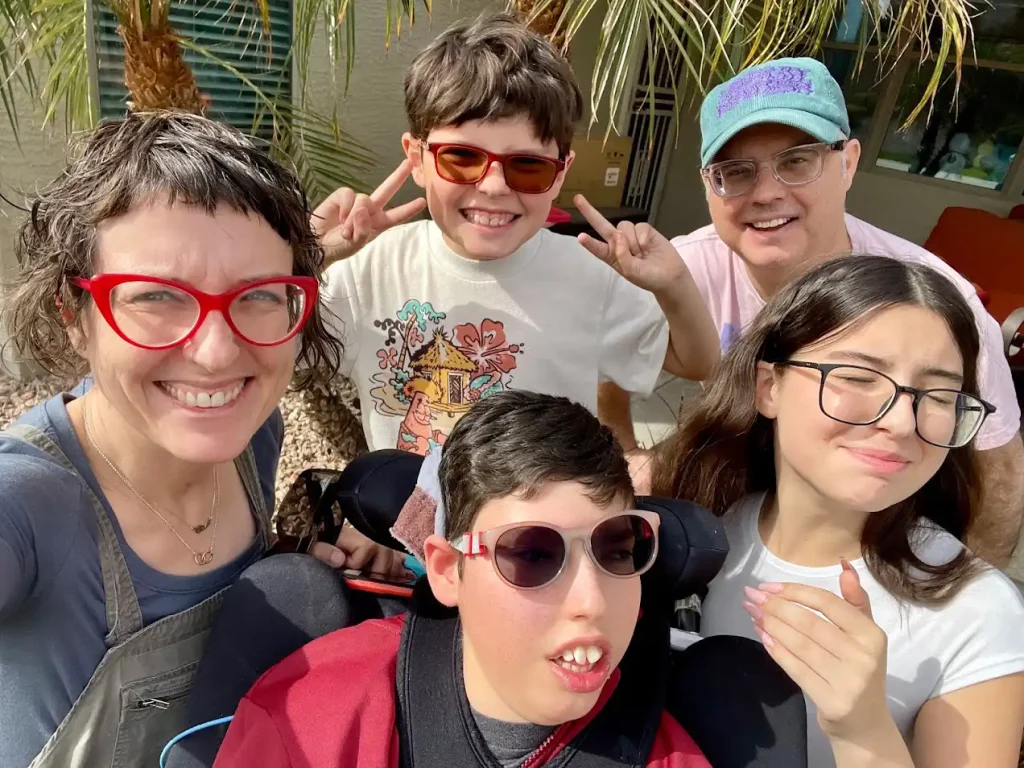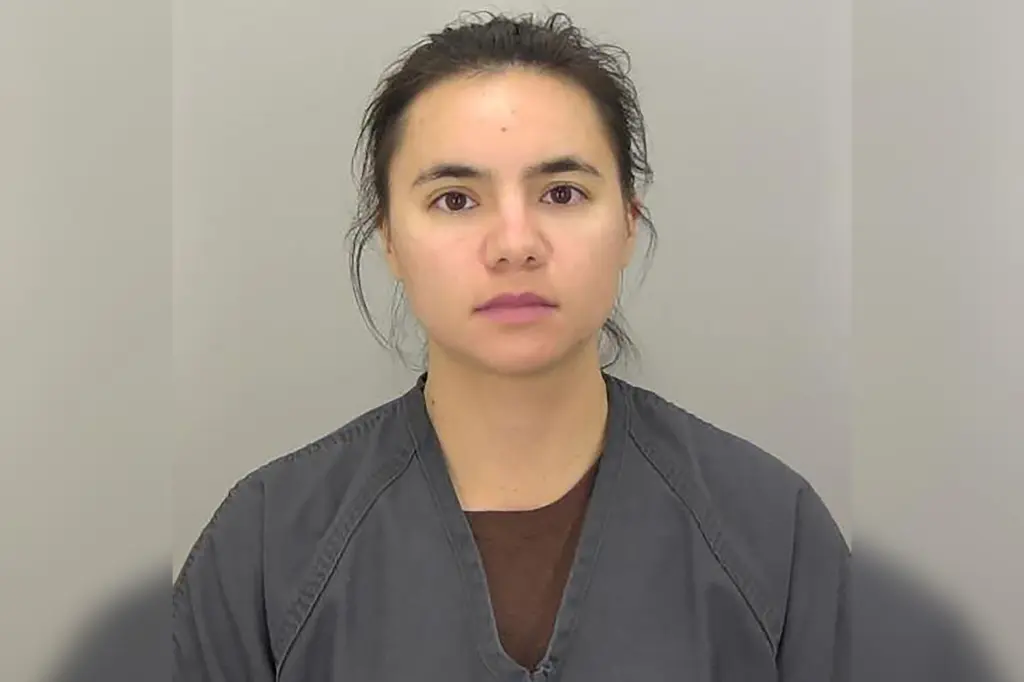Inside the Heartwarming Mission of Ryan House — the Free Respite Facility Giving Parents of Medically Fragile Children a Chance to Breathe, Recharge, and Hope Again
In a small, sunlit building in Phoenix, Arizona, laughter echoes through the halls — a rare, beautiful sound in a place where so many parents arrive exhausted and emotionally spent. At Ryan House, children with complex and life-limiting medical conditions are given care, comfort, and connection — while their parents are finally given something just as vital: a break.
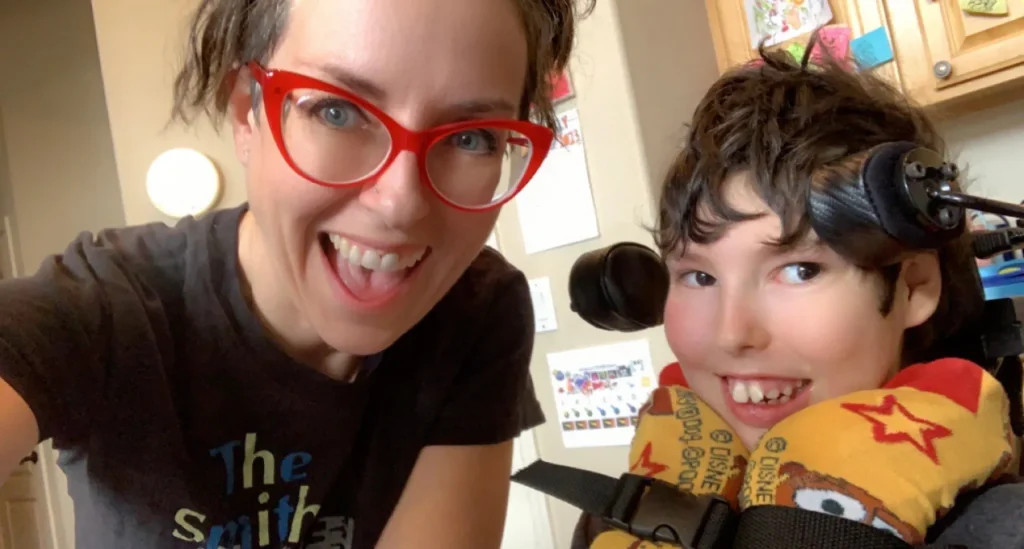
For Kathleen and Tim Dobson, Ryan House is more than a facility — it’s a refuge. Their son Gideon was born with severe medical needs that require around-the-clock care. Between managing medications, feeding schedules, therapies, and constant monitoring, the family’s life has become a delicate balance of love and responsibility. “When you’re caring for a child who can’t walk, speak, or eat independently, there’s no off switch,” Kathleen tells People. “There’s no such thing as downtime.”

But when Gideon spends time at Ryan House, everything changes — not just for him, but for his entire family. “We know he’s safe. We know he’s cared for by people who love him,” she says. “And that allows us to take a deep breath for the first time in weeks.”
Ryan House is one of only a handful of free respite facilities for children with serious medical conditions in the United States — a model that remains rare despite overwhelming need. Its purpose is simple yet profound: to give children with complex health challenges a place where they can receive expert care in a joyful, home-like environment, while parents and caregivers have a chance to rest, reconnect, or even just sleep through the night.
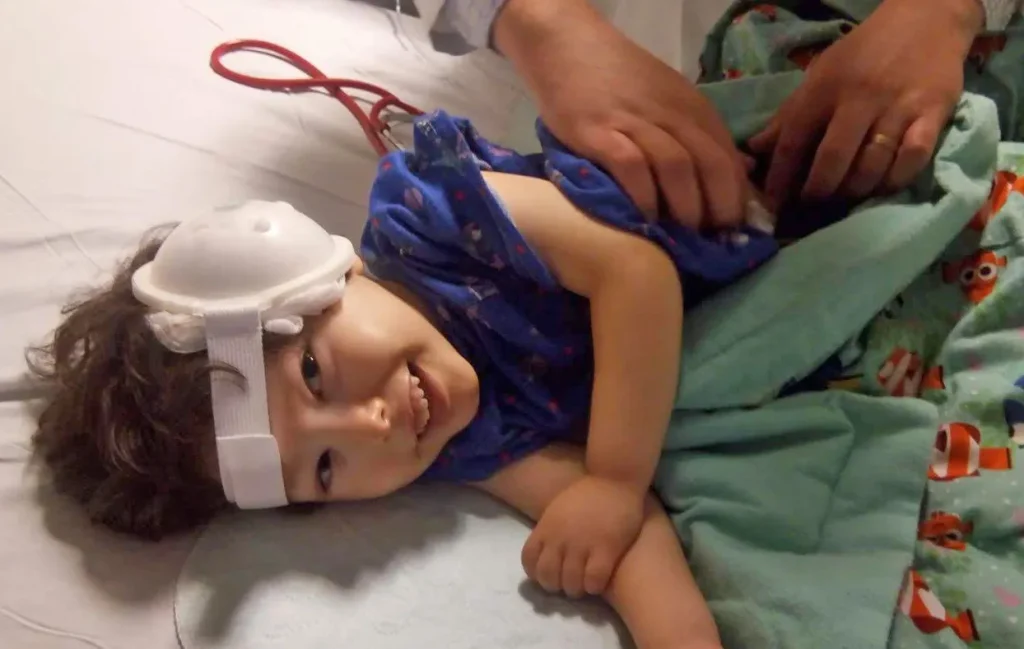
Founded in 2010, Ryan House was inspired by Helen House in Oxford, England — the world’s first children’s hospice. The idea is grounded in compassion: that children facing life-limiting illnesses deserve more than hospital rooms and sterile routines; they deserve comfort, play, and dignity. At the same time, parents — who often carry the weight of constant vigilance — need a moment to recover their strength.
Kathleen remembers the first time she left Gideon at Ryan House. “I cried all the way home,” she admits. “It wasn’t because I was scared — it was because I hadn’t realized how tired I really was. I didn’t know what it felt like to stop worrying, even for a few hours.”
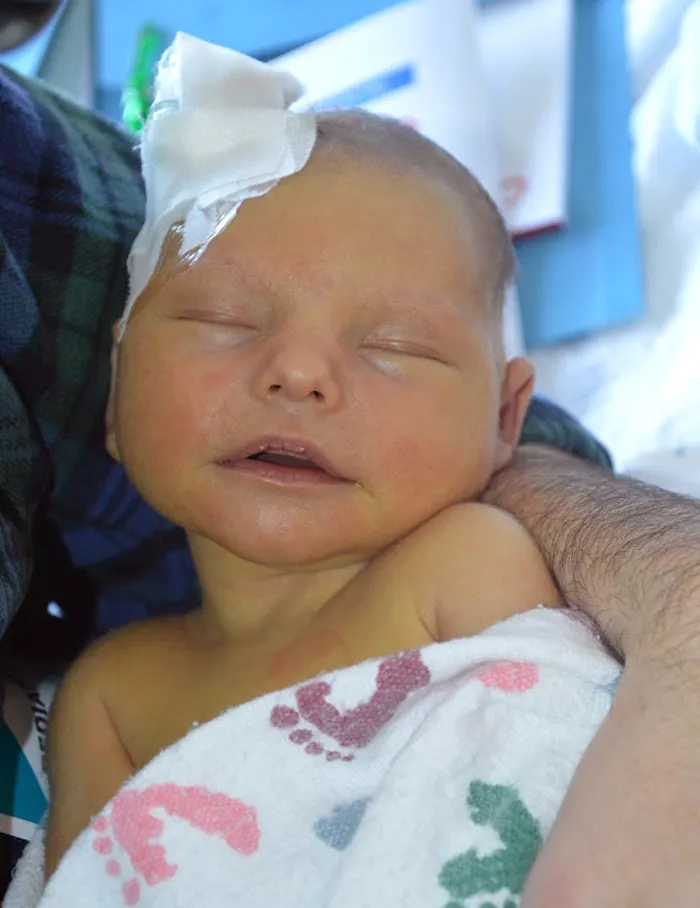
The staff at Ryan House are trained medical professionals who provide 24-hour care for children who may be on ventilators, feeding tubes, or under palliative care. But their approach is built on warmth and humanity as much as medical precision. Children are greeted by name. There are bright murals, laughter in the common rooms, and adaptive play equipment designed for every ability level. “We want kids to feel like this is their home away from home,” says Executive Director Tracy Leonard-Warner. “It’s not about illness here — it’s about life.”
Gideon, who loves music and the outdoors, often participates in art and sensory activities during his stays. “They paint his hands, they take him outside to feel the sun on his face — things that might seem small but mean everything,” Kathleen shares. “They make him feel like any other kid.”

The experience also gives his siblings — his older sister and younger brother — the opportunity to just be kids themselves. “When you have a medically fragile child in the family, the focus naturally shifts to their needs,” Kathleen says. “Ryan House helps balance that. It reminds our other kids that they’re part of this story too — that they matter just as much.”
For parents of medically complex children, the exhaustion can be overwhelming. Many work around the clock — not only emotionally, but physically — managing care that would typically require a team of nurses. The idea of “taking a break” can feel impossible, even selfish. That’s why facilities like Ryan House are crucial — not only for relief, but for survival. “Parents need a break,” Kathleen says firmly. “If we don’t take care of ourselves, we can’t take care of our kids.”

Unfortunately, few families in the U.S. have access to this kind of support. There are currently fewer than ten pediatric respite and hospice homes nationwide, despite the fact that hundreds of thousands of children live with serious or terminal illnesses. The Children’s Respite Homes of America (CRHA), a growing movement, is working to change that — advocating for more funding, awareness, and community partnerships to expand the model across the country.
Dr. Kathy Hull, founder of George Mark Children’s House in California — another pioneering facility — has described pediatric respite care as “one of the most underdeveloped but most necessary areas of modern healthcare.” She explains that families often fall into crisis when there are no services available to provide relief. “If we don’t care for the caregivers, we risk losing them to burnout. And when that happens, everyone suffers — especially the child.”
At Ryan House, families don’t pay a single dollar. Funding comes through donations, grants, and community support — a testament to the power of collective compassion. “Every child deserves a chance to laugh, to play, to feel loved — no matter their diagnosis,” Leonard-Warner says. “And every parent deserves to breathe without guilt.”
That sentiment resonates deeply with parents like the Dobsons. “When Gideon was first diagnosed, we felt completely alone,” Kathleen says. “Doctors talked about medical plans, treatments, and therapies, but nobody talked about what it would feel like to live this way — the fear, the exhaustion, the uncertainty. Ryan House changed that for us. They reminded us that there’s still joy, even on the hardest days.”
The impact of respite care goes far beyond physical rest. It strengthens families emotionally, helps prevent depression and anxiety among caregivers, and fosters a sense of community. Parents often connect with others going through similar experiences, forming lifelong friendships built on understanding and shared resilience. “There’s a comfort in knowing you’re not the only one,” Kathleen says. “You look around and realize, these people get it. They know the language of worry and love.”
At Ryan House, the team also helps children and families navigate the emotional side of serious illness — including grief, hope, and acceptance. There are spaces for remembrance, family counseling, and even birthday celebrations for children whose lives may be shorter than most. “We celebrate everything,” Leonard-Warner says. “Every milestone matters.”
For the Dobsons, those milestones come in many forms — a good day for Gideon, a successful physical therapy session, or a weekend where everyone gets to laugh together. “When we pick him up from Ryan House, he’s glowing,” Kathleen says. “You can tell he’s been happy. And when he’s happy, we all are.”
The family’s story has since become part of a national conversation. Kathleen has joined advocacy efforts through Children’s Respite Homes of America, sharing her experience to inspire others and push for policy changes that recognize respite care as an essential service, not a luxury. “We need more Ryans Houses — in every city, every state,” she says. “Because there are thousands of families like ours who desperately need a place to rest, even if it’s just for a weekend.”
Her message is simple but powerful: “Parents like us don’t want pity. We just want support — a chance to keep doing the job we love most: being parents.”
The hope is that with greater awareness and funding, more facilities will emerge to mirror the Ryan House model, offering medically complex children a joyful, dignified environment — and giving their families the strength to keep going.
As Kathleen looks at her son, her voice softens. “He’s taught us so much about patience and gratitude,” she says. “Ryan House taught us that we don’t have to carry it all alone.”
In a world often focused on speed and productivity, Ryan House is a reminder of something slower, deeper, and infinitely more human — that caring for the most vulnerable among us also means caring for those who love them. And sometimes, the most powerful gift you can give a family isn’t a cure — it’s a moment to rest, recharge, and remember that they’re not alone.
